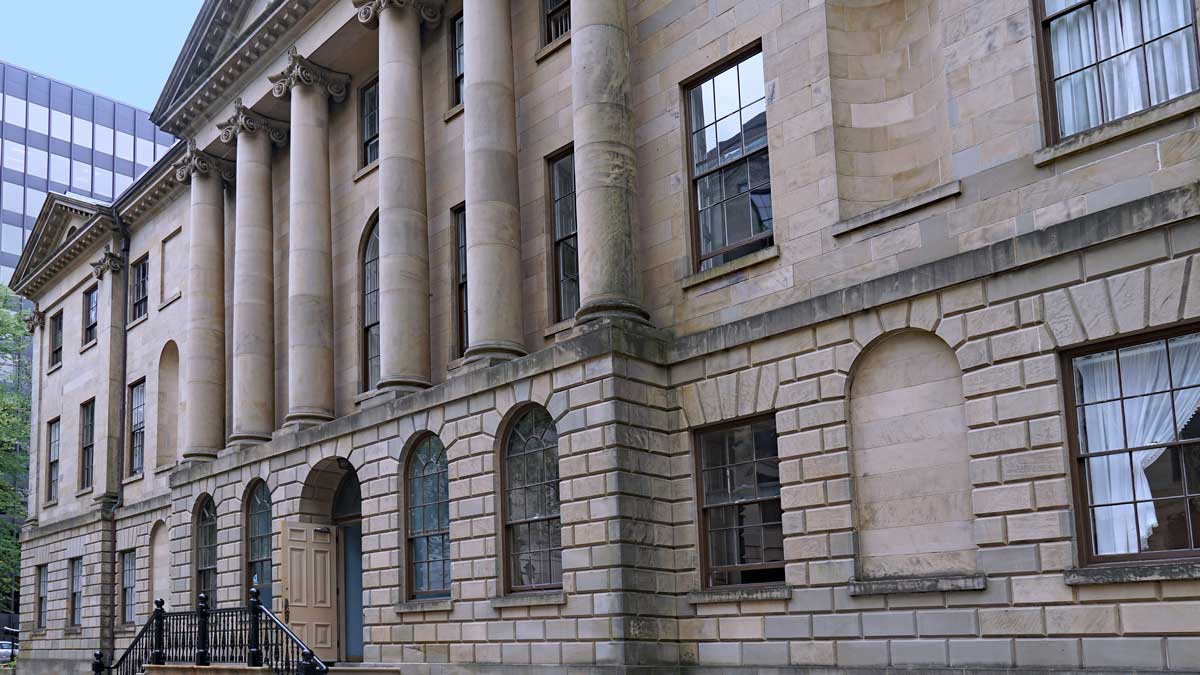Quite often my colleagues and I talk about things related to the proceedings in the N.S. Legislature, forgetting that people don’t necessarily know the full meaning of some of our legislative terminology, so I thought it would be helpful if I explained some of these terms.
Progress of Bills
The Progress of Bills is produced by the Nova Scotia Legislative Library. It tracks the Bills as they go through various stages in the House of Assembly.
First Reading is the date on which the Bill was introduced by the MLA.
Second Reading is when the house voted to give the Bill 2nd Reading after being debated in the house.
An Asterisk* following the title of the Bill indicates that the Bill has been amended between First and Third readings.
Royal Assent is the day on which the Lieutenant Governor signs the final version of the Bill and the Bill is then referred to as an Act.
Commencement is the day on which the Act takes effect.
Bill
A proposed law to create an entirely new law or to change an existing one. To become law, a bill must pass three readings, committee study, and be given Royal Assent. Some bills come into effect on Royal Assent. Others may contain a provision indicating that they, or part of them, become law either when they have been proclaimed or on a particular date.
Private and Local Bills
Bills introduced by members other than cabinet ministers or by cabinet ministers in their capacity as private members. Unlike Private Members Public Bills, private and local bills do not have general application throughout the province. Private bills apply only to an individual or group of individuals while local bills apply within a particular geographical area or to a particular municipality.
Private Members Public Bills
A bill that enacts or amends laws that apply to the entire province but are introduced either by members other than cabinet ministers or by cabinet ministers in their capacity as private members.
Government Bills
A bill introduced by a cabinet minister as government measures.
First Reading
The first stage in the passage of a bill into law. The Introduction of Bills is an order of business that must be called during each sitting as part of the Daily Routine. The sponsoring member briefly introduces the bill. First reading always passes without debate or vote.
Second Reading
Second reading is moved by the member who introduced the bill. The member usually explains the general principle or principles underlying the bill. A debate follows, in which any member may speak for up to one hour, but only on the bill’s general principles. Specific sections are debated in committee stage by either the Law Amendments Committee or the Private and Local Bills Committee, and Committee of the Whole House on Bills.
Third Reading
The final stage in the consideration of a bill. Members have a chance to comment on, criticize, or ask questions about the bill again before voting on it for the last time. Third reading debate is usually limited to brief comments supporting or opposing the bill.
Committees
A group composed of Members of the Legislative Assembly who are appointed and authorized by the House of Assembly to investigate and report on specific issues of importance. There can be standing, select, or special committees of the House.
Standing Committees
A committee of Members of the Legislative Assembly mandated by standing orders. All standing committees are appointed for the life of a General Assembly; however, membership changes may be made by government motion at any time.
Select Committees
These ad hoc committees are created by an order or resolution of the House of Assembly to investigate a particular issue. In Nova Scotia, there is no difference between a select and a special committee.
Royal Assent
Royal Assent is the day on which the Lieutenant Governor signs the final version of the Bill, and the Bill is then referred to as an Act.
Proclamation
An official notice issued by the Lieutenant Governor
Amendment
A proposal to alter the text of a bill or other measure by inserting new text, by deleting text, or both. Amendments must be introduced by motion and must be approved by the House of Assembly before the proposed change takes effect.
Motion
A proposal made by a member in the House of Assembly requesting an action, order, or opinion on a matter by the House. A motion initiates all business undertaken by the House.
Motion of Non-confidence
A motion which shows government has lost support to enact its policies, legislation, or the spending of public funds. When adopted by a majority of MLAs, government has lost the ‘confidence’ of the House. The government then either resigns or requests that the Lieutenant Governor dissolve the Assembly.
Motions Under Rule 5(5)
On certain days of the week, members may make a motion under rule 5(5). This rule allows members to debate either a non-government motion listed on the Order Paper or a matter arising out of Question Period. Quorum is not required and no votes are called.
House of Assembly
The elected body of 51 Members of the Legislative Assembly (MLAs). In Nova Scotia, the legislative assembly is officially called the House of Assembly. The members of the House of Assembly are elected in a provincial general election or by-elections. The House can sit for a maximum of five years from the expiration of a general election writ.
